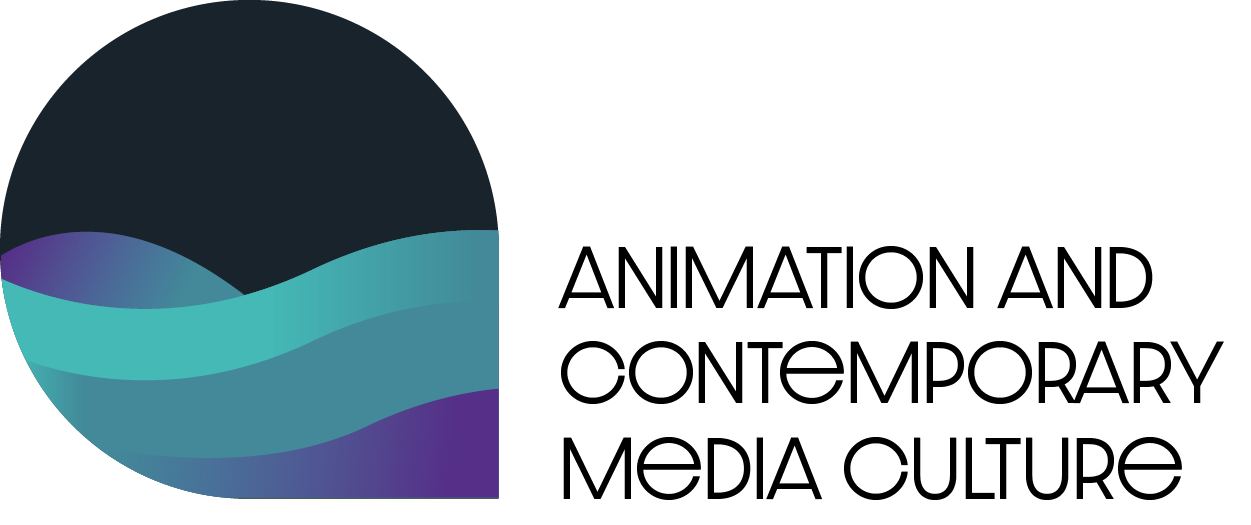Animationen begegnen uns überall: als sichtbare Illusion und unsichtbarer Effekt in Film und TV; als bewegte Information auf elektronischen Anzeigetafeln; als interaktives Interface von Smartphone und Fahrkartenautomat; als User-generiertes, wiederverwendetes oder geteiltes Element auf Social- Media- und Video-Portalen. Gerade im deutschsprachigen Raum gibt es allerdings bisher nur vereinzelt institutionalisierte Forschung zu Animation. Existierende Arbeiten deutschsprachiger Animationswissenschaftler*innen werden infolgedessen national und international bislang kaum sichtbar und ihr potenzieller Beitrag zu aktuellen Fragen der Medien- und Kulturwissenschaften vielfach ignoriert.
Das wissenschaftliche Netzwerk “Animation and Contemporary Media Culture. Challenges and Potentials of Animation Studies in the Digital Era“ zielt auf die systematische Profilierung und Internationalisierung animationswissenschaftlicher Forschung aus dem deutschsprachigen Raum ab und forciert zugleich strategische Maßnahmen zum Aufbau und zur Stärkung der Animation Studies in Deutschland.
Im Fokus stehen aktuelle Herausforderungen der Medienkultur, insbesondere in den Bereichen Digitalisierung, Medienkonvergenz und Globalisierung. Ansätze der Animation Studies werden im Netzwerk auf ihr Potenzial hin reflektiert, zur Analyse und Bewertung aktueller Medienentwicklungen beizutragen. Zu den Arbeitsformen gehören regelmäßige virtuelle und Vor-Ort-Workshops sowie Publikationen.
Animation and Contemporary Media Culture. Challenges and Potentials of Animation Studies in the Digital Era
Animation ist in der digitalen Film- und Medienkultur allgegenwärtig, wurde im deutschsprachigen Raum wissenschaftlich aber bislang nur vereinzelt und ohne institutionelle Infrastruktur erforscht. Das wissenschaftliche Netzwerk “Animation and Contemporary Media Culture. Challenges and Potentials of Animation Studies in the Digital Era“ eröffnet einen strukturierten fachlichen Austausch zwischen Nachwuchswissenschaftler*innen und international ausgewiesenen Expert*innen in diesem jungen Forschungsfeld. Im Mittelpunkt stehen Herausforderungen und Potenziale der Animation Studies bei der Analyse und Bewertung aktueller Medienentwicklungen.
- Projektbeginn:
- 2020
- Projektabschluss:
- 2024
Veranstaltungen
Workshop: Animation Theory and Practice
08.–10.09.2023 | Ars Electronica Center, Linz
Gäste: Birgitta Hosea (University for the Creative Arts, Farnham), Helen Starr (The Mechatronic Library)
Organisation: Juergen Hagler, Maike Reinerth- Workshop: Archiving and Canonizing Animation
01.–03.03.2023 | Deutsches Institut für Animationsfilm (DIAF), Dresden
Gäste: Mette Peters (University of the Arts Utrecht/Utrecht University), Dr. Till Grahl (DIAF) & Lars Rebehn (Puppentheatersammlung Dresden)
Organisation: Julia Dufek, Maike Sarah Reinerth - Workshop: Studying Animation Festivals: Networks – Spaces – Synergies
18.–19.05.2022 | Eberhard-Karls-Universität Tübingen (hybrid)
Gäste: Chris Pallant (Canterbury Christchurch University) & Irida Zhonga (Rijksuniversiteit Groningen/Independent Animator)
Organisation: Rada Bieberstein, Erwin Feyersinger - Symposium: Animation and Politics in a Globalized World
28.–29.10.2021 | Filmuniversität Babelsberg KONRAD WOLF (virtuell)
Gäste: Eric Herhuth (Tulane University New Orleans) & Esther Leslie (Birkbeck, University of London)
Organisation: Erwin Feyersinger, Andrea Polywka, Maike Sarah Reinerth - Workshop: New Technologies, Forms and Genres of Animation: The Visuality of Virtuality – Documenting Digital Animation
23.–25.06.2021 | Ruhr-Universität Bochum (virtuell)
Gäste: Nea Ehrlich (Ben-Gurion University of the Negev), Joel McKim (Birkbeck University of London), Anna Tuschling (Ruhr-Universität Bochum)
Organisation: Julia Eckel - Workshop: Animation Studies and Publishing
29.–30.03.2021 | Eberhard Karls Universität Tübingen (virtuell)
Gäste: Cristina Formenti (University of Udine), Caroline Ruddell (Brunel University London), Anette Schüren (Schüren-Verlag Marburg)
Organisation: Rada Bieberstein, Erwin Feyersinger - Workshop: History and Present of Animation (Studies)
26.–28.11.2020 | Filmuniversität Babelsberg KONRAD WOLF (virtuell)
Gäste: Nichola Dobson (University of Edinburgh), Paul Ward (Arts University Bournemouth)
Organisation: Maike Sarah Reinerth
Projektleitung
Dr. Maike Reinerthweitere Informationen: Dr. Maike Reinerth Akademische Mitarbeiterin für Dramaturgie und Ästhetik der audiovisuellen Medien / Referentin für Nachhaltigkeit in der Lehre
Beteiligte
Naima Alam, Eberhard Karls Universität Tübingen
Dr. Rada Bieberstein,Eberhard Karls Universität Tübingen
Dr. Franziska Bruckner, FH St. Pölten
Julia Dufek, Filmuniversität Babelsberg KONRAD WOLF
Dr. Julia Eckel, Universität Paderborn
Dr. Erwin Feyersinger, Eberhard Karls Universität Tübingen
PD Dr. Ralf Forster, Filmmuseum Potsdam, Filmuniversität Babelsberg KONRAD WOLF
FH-Prof Dr. Jürgen Hagler, FH Oberösterreich (Hagenberg Campus)
Asst. Prof Dr Max Hattler, City University of Hong Kong
Jannik Müller, Universität Osnabrück
Andrea Polywka, Philipps-Universität Marburg
Dr. Jana Rogoff, DFG-Forschungsprojekt “Eastern European Animation Between Art and Politics, 1945–1990”, Humboldt-Universität zu Berlin
Vera Schamal, Zürcher Hochschule der Künste
Wissenschaftliche Hilfskräfe
Sabrina Reis
Christoph A. Klimke (bis 09/2022)
David Segler (bis 09/2021)
Projektwebsite bei der DFG


